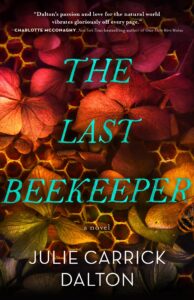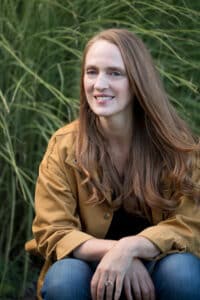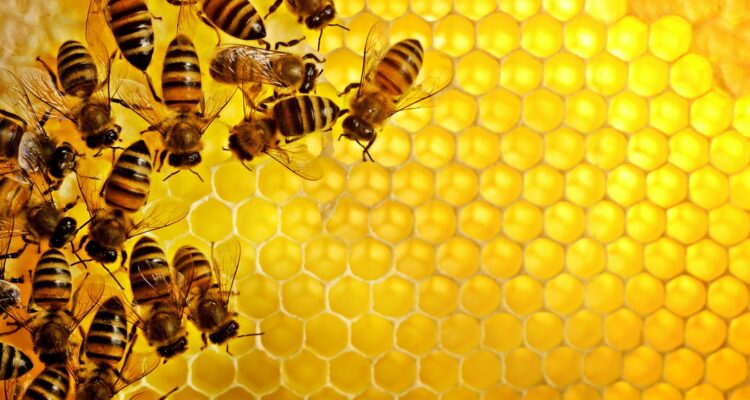Synopsis:
It’s been more than a decade since The Great Collapse of the world’s pollinators, and Sasha Severn has returned to her childhood home with one goal in mind―find the mythic research her father, the infamous Last Beekeeper, hid before he was incarcerated. There, Sasha is confronted with a group of squatters who have claimed the quiet, idyllic farm as their own. While she initially feels threatened, the group soon becomes her newfound family, offering what she hasn’t felt since her father was imprisoned: security and hope. Maybe it’s time to forget the family secrets buried on the farm and focus on her future.
 But just as she settles into her new life, Sasha witnesses the impossible. She sees a honey bee, presumed extinct. People who claim to see bees are ridiculed and silenced for reasons Sasha doesn’t understand, but she can’t shake the feeling that this impossible bee is connected to her father’s missing research. Fighting to uncover the truth could shatter Sasha’s fragile security and threaten the lives of her newfound family―or it could save them all.
But just as she settles into her new life, Sasha witnesses the impossible. She sees a honey bee, presumed extinct. People who claim to see bees are ridiculed and silenced for reasons Sasha doesn’t understand, but she can’t shake the feeling that this impossible bee is connected to her father’s missing research. Fighting to uncover the truth could shatter Sasha’s fragile security and threaten the lives of her newfound family―or it could save them all.
The Last Beekeeper is a celebration of found family, an exploration of truth versus power, and the triumph of hope in the face of despair. It is a meditation on forgiveness and redemption and a reminder to cherish the beauty that still exists in this fragile world.
Book Club Questions:
- Sasha has made herself three promises: Find the research. Understand the truth. Rebuild a family. Why are these promises important to her? Given the state of the world at the beginning of the book, would you have the same priorities?
- The extinction of bees creates an agricultural collapse. What did you learn about the significance of small things in nature from this book?
- Sasha is drawn back to her childhood home, like a bee to the hive. How else do Sasha’s life and actions mirror her beloved bees?
- When Sasha finds the asparagus that she shares with her friends, she’s reminded that “dormant possibilities can fight their way toward the sunlight.” What are other things in the book that give Sasha reasons to be hopeful for the future?
- Ian, Gino, Halle, and, eventually, Sasha form a strong bond in their time together at the farm. What role does each character play in their found family?
- How would Sasha’s life be different if she hadn’t felt personally responsible for the demise of the last bees? Would she be as motivated to search for potential surviving bees if the Collapse hadn’t impacted her so directly?
- In his letter to Sasha, her father writes: “Don’t let grief over what we have lost blind you to the beauty in front of you.” How does that inform Sasha’s decisions?
- Do you feel hopeful at the end of the book?

Julie Carrick Dalton is the author of The Last Beekeeper and Waiting for the Night Song, a CNN, USA Today, Newsweek, and Parade Most Anticipated 2021 novel, and an Amazon Best Book of the Month. Her writing has appeared in The Boston Globe, BusinessWeek, The Hollywood Reporter, Orion, Chicago Review of Books, Electric Literature, and other publications. A Tin House, Bread Loaf, and GrubStreet Novel Incubator alum, Dalton holds a master’s degree in literature and creative writing from Harvard Extension School. She is a frequent speaker on the topic of writing fiction in the age of climate crisis. When she isn’t reading, writing, or wrangling her four kids, you can probably find her skiing, kayaking, or digging in her garden.



noter onaylı tercüme
Nice post. I learn something totally new and challenging on websites
online tercüme
noter onaylı tercüme